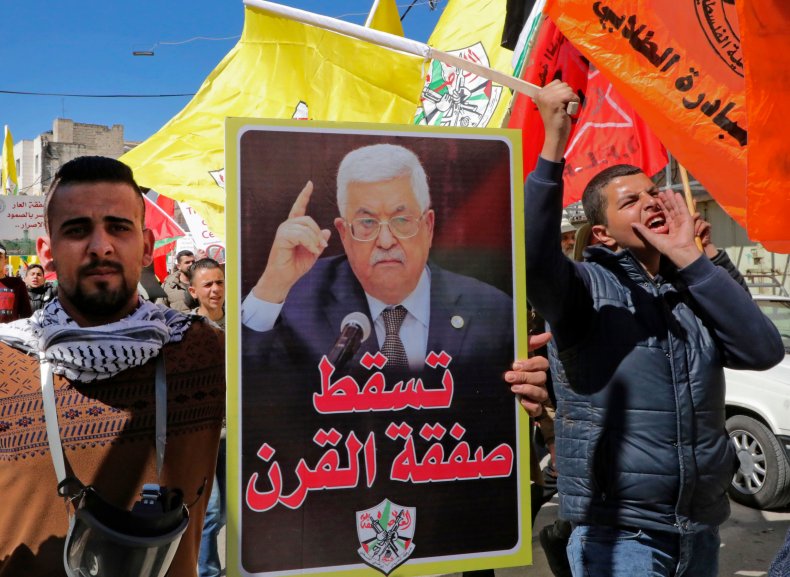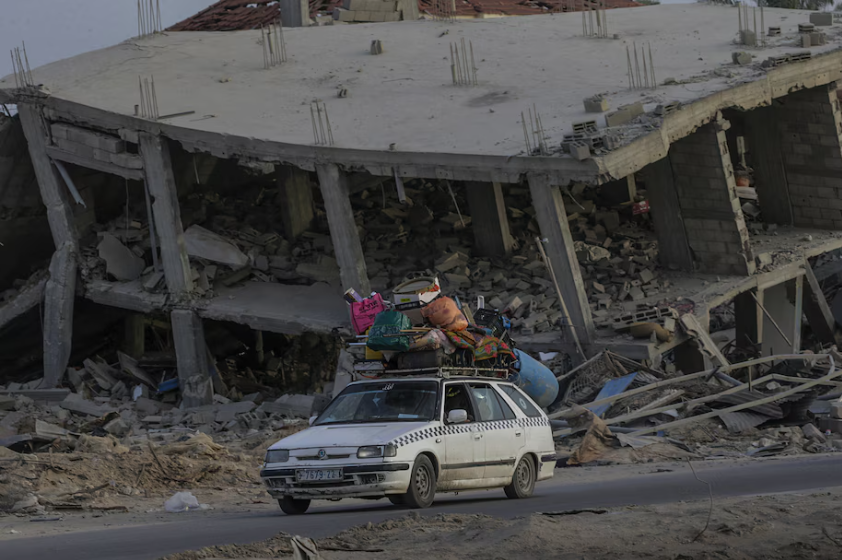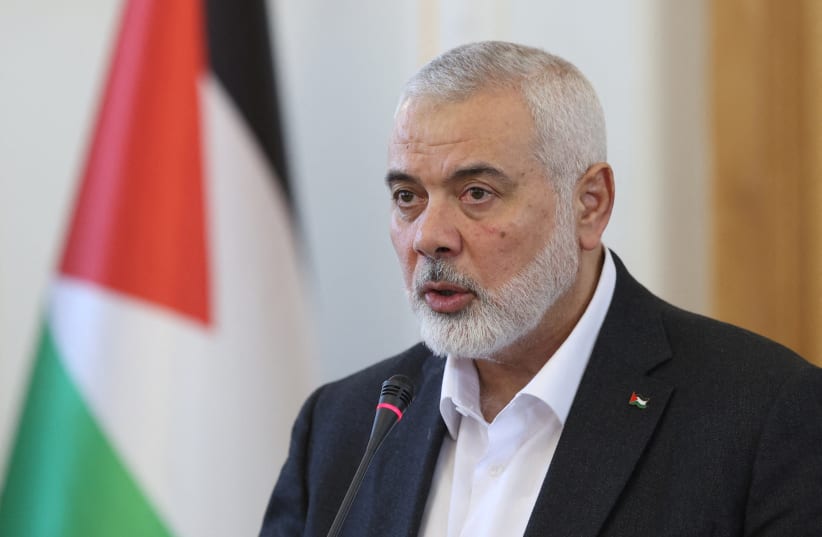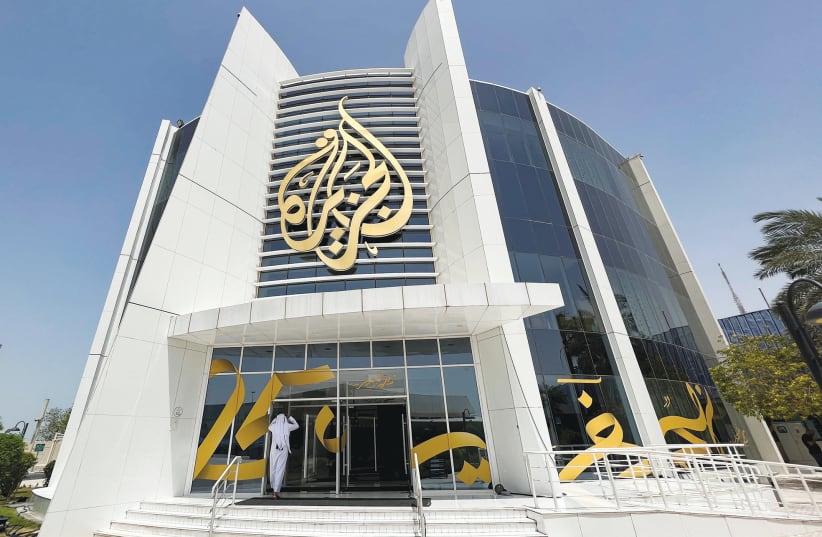This article is more than
4 year oldPalestinian President to Exit from Deals with U.S., Israel Over Land Grab

Palestinian Authority President Mahmoud Abbas has announced he was exiting all agreements with the Israeli and U.S. governments, including those pertaining to security, as a result of their "deal of the century" that he said paved the way for the Israeli annexation of the West Bank.
Abbas railed against the plan, unveiled in late January by President Donald Trump and Israeli President Benjamin Netanyahu, during a press conference Tuesday in Ramallah. The remarks came a day after Netanyahu swore in a new unity government alongside rival Benny Gantz, promising to apply Israeli sovereignty over settlements occupying territories in the West Bank.
Abbas said this decision effectively nullified all agreements signed between Palestinian and Israeli leaders since the historic Oslo Accords of 1993 and 1995. As a result, he argued he too was no longer bound by such arrangements that established a semi-autonomous Palestinian government and its fragile truce with Israel.
"The Palestine Liberation Organization and the State of Palestine are today relieved from all agreements and understandings with the American and Israeli governments, and from all the obligations arising from those understandings and agreements, including those involving security," Abbas said.
He argued the decision would mean Israel must bear all the responsibilities of an occupying power under international law, especially the Fourth Geneva Convention of 1949. The document affords the populations living under an occupying power protections against state-sponsored violence, forcible displacement and the seizure of property, among other potential abuses.
Abbas said Trump's "deal of the century" was ultimately to blame for this collapse, also referencing the White House's decision in 2018 to move the U.S. embassy in Israel from Tel Aviv to the disputed city of Jerusalem.
"We hold the U.S. administration fully responsible for the oppression of the Palestinian people, and we consider it an essential partner with the Israeli occupation government in all aggressive decisions and measures that prejudice the rights of our people," Abbas said. "Nevertheless, we welcome all the positions of other American parties that reject the policies of this administration that are hostile to our people and their legitimate rights."

reading "Down with the Deal of the century" during a demonstration in memory of the 1994 Ibrahimi Mosque massacre and against Washington's Middle East peace plan, in the occupied West Bank city of Hebron on February 28. HAZEM BADER/AFP/GETTY IMAGES |
The "deal of the century," officially known as the "Vision for Peace, Prosperity and a Brighter Future" grants Israel jurisdiction over internationally-unrecognized Jewish settlements and occupied areas bordering Jordan in exchange for a Palestinian path to potential statehood and some desert territories along the Egyptian border on the condition that the Palestinian side renounces violence and recognizes Israel as a Jewish state. It also entailed a U.S. pledge to invest $50 billion in Palestinian-controlled territories.
The plan was touted by both Trump and Netanyahu but some of its ideas—which include a tunnel connecting two non-contiguous Palestinian territories—were met with controversy across the Middle East, where even partnered countries in the Arabian Peninsula were cautious to back it and others outright rejected it. Abbas immediately responded to the proposal at the time with "a thousand no's."
On Tuesday, he urged countries who joined him in opposing it to take a tougher line against Israel in order to support a more equitable two-state solution.
But Netanyahu has long affirmed it was within Israel's right to assert control over the West Bank and Jordan Valley regions. During his Knesset speech Sunday, he said Jewish settlements in these areas "will become part of Israel in any scenario."
The escalation came within days of Palestinians marking the 72nd Nakba Day, which remembers the mass displacement of Palestinians during the first Arab-Israeli War that tore through the region in 1948. The U.S. has since become a close ally of Israel, with the Trump administration aligning itself especially close to that of Netanyahu, who has made annexation a core tenet of what has become the longest premiership in Israel's history.
Netanyahu first served in this role from 1996-1999 and has again since 2009. His latest victory came after a tight race with fellow military veteran Gantz, who also endorses the annexation plan.
Abbas has served as president of the Palestinian Authority since 2005. His four-year term has never ended as a division between his Fatah party and the Islamist Hamas movement has staved off elections for the past 15 years. The two Palestinian rivals have repeatedly tried to reconcile and have issued calls to work together to oppose Israel's attempts to seize the West Bank.
Keywords
Newer articles
<p>They have been blasted from car stereos on the streets of New York City, played by DJs at nightclubs across the US, dubbed into Chinese on TikTok and inspired merengue songs...
Island nation erupts into violence, three dead
Taylor Swift concert photo horrifies internet
Ellen to make TV comeback after two years
Sean 'Diddy' Combs asks judge to reject lawsuit alleging rape of 17-year-old girl in 2003
Ukraine finds itself in a grave situation. Russia appears to be advancing
How the West's plan to punish Russian oil backfired
Will Zionism survive the war?
Putin's Preparing Better Than Us for a Long War
How Michael Cohen went from Trump’s fixer to a key witness against him




